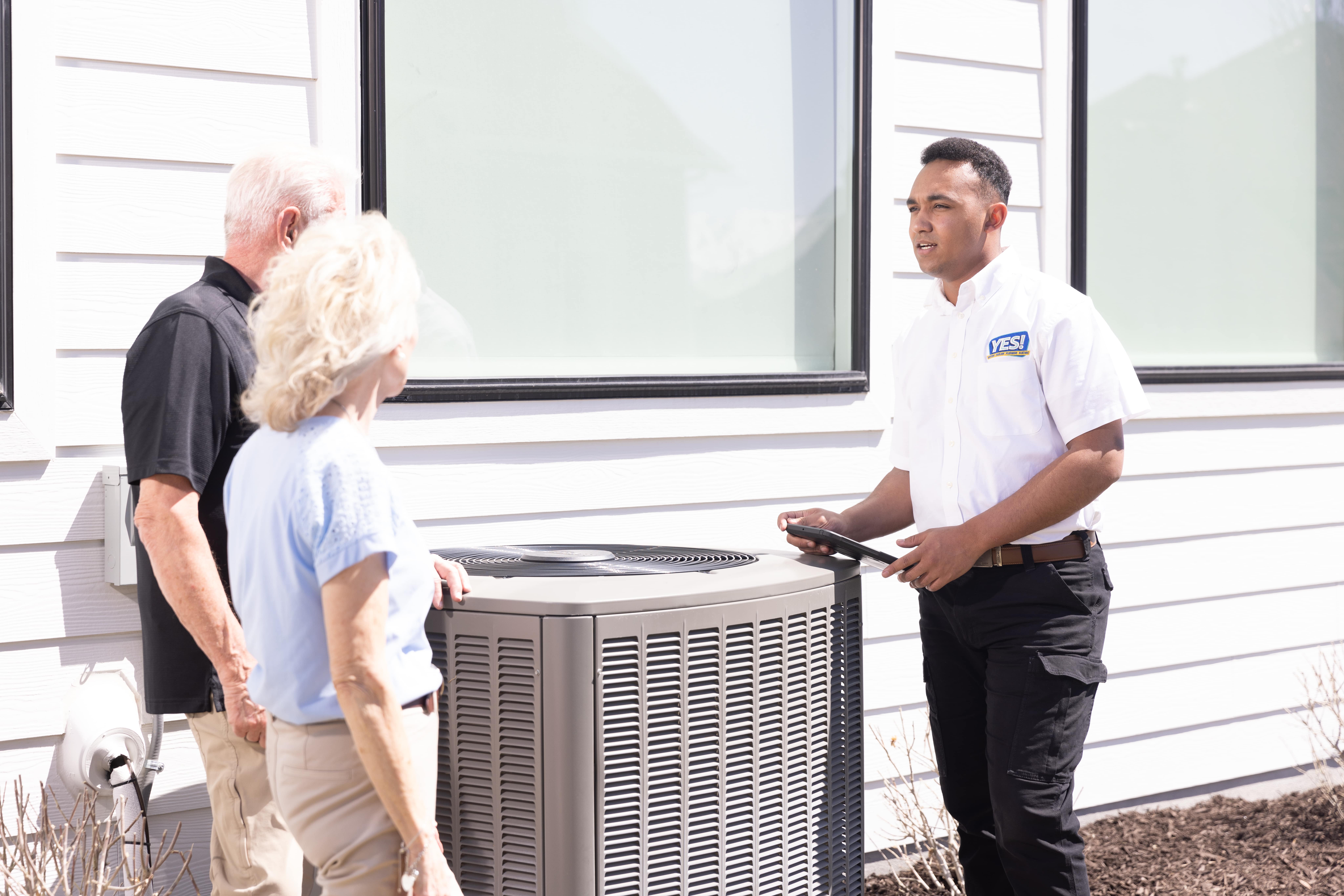Why Do Air Conditioners Freeze Up?
April 26, 2023

As your air conditioner runs, you may notice it freezing up occasionally. When it does, you may also notice your system doesn’t run properly. Is it normal for your system to freeze, what causes it to do so, and what can you do about it?
How Air Conditioners Work
The first step to understanding AC freezes is understanding how it works in the first place. Your HVAC system works by circulating air. The air conditioner cools air by circulating refrigerant that removes heat from the air.
The refrigerant does its job by increasing and decreasing the pressure at the right places. Just before it enters the evaporator coil, the system drops the pressure, making it very cold. This allows it to absorb the heat from the air flowing through the system.
Then it moves out to the condensing unit outside your home. The compressor increases the pressure, which increases the temperature. As the temperature rises, it can effectively transfer the heat to the outside air.
System freezes typically come from one of three issues, including the refrigerant, the airflow, or a mechanical component.
Refrigerant Issues
Refrigerant issues are one of the most common causes for significant AC freezes. Specifically, when the system lacks refrigerant, it cannot increase the pressure to transfer heat out.
While the refrigerant may be low, the compressor continues trying to push more into the condensing coil to create the pressure. This is like sucking through a straw when there’s little at the other end.
The continued draw of refrigerant creates low pressure just before the compressor, causing the lines to freeze. Eventually, this pushes the low pressure all the way back to the evaporator coil.
Airflow Restrictions
Another common issue leading to system freezes is restricted airflow through the system. This includes restrictions on the air filter, the evaporator coil, and the circulating fan.
In all cases, the reduced air means the refrigerant is not absorbing as much heat being there is less air circulating. This leads to freezes starting at the evaporator coil, being the refrigerant is not as warm.
When the air filter collects too many contaminants, air cannot flow through to the rest of the system. Likewise, if the circulating fan is dirty, it draws less air through the system to cool.
The evaporator coil is a wholly different issue. As the system runs, tiny contaminants collect on the coil, causing two separate problems. First, the contaminants prevent the right amount of air from flowing over the coil. Second, these contaminants form a type of insulation on the coils, inhibiting the heat transference from the air.
Mechanical Malfunctions
Mechanical malfunctions also lead to problems with appropriate airflow or refrigerant pressure. The most common is the circulating fan motor burning out.
As the motor nears the end of its service life, it may begin to spin more slowly than normal. This, of course, leads to less air flowing through the system. You may notice less air coming from your vents or even a rattling or buzzing sound coming from the motor.
Your compressor is another component that may cause freeze-ups when it fails since it helps regulate the pressure. The common signs of a bad compressor include your circuit breaker tripping or a growling sound.
Less commonly, you may have a problem with the expansion valve located just before your evaporator coil. If this malfunctions, it may allow too much refrigerant through to the evaporator or not enough. When there’s too much going through, it causes a freeze in the lines leading to the valve. When there’s too little, it causes the evaporator coil itself to freeze up.
Dealing With Freezes
Turn off your system immediately if you notice or suspect any part of your system has frozen. Check your air filter to ensure it is clean while you are waiting for it to thaw. Consider calling an experienced HVAC technician to troubleshoot what caused the freeze in the first place.
As the saying goes, an ounce of prevention is worth a pound of cure, including with your air conditioner. The best way to prevent these annoying and damaging freezes is to get professional maintenance on your system every spring.
During these visits, a technician inspects your air filter and tests your refrigerant level. They also clean your evaporator coil and circulating fan, and they test each component. In essence, they are doing everything they can to prevent airflow restrictions or refrigerant circulation problems and mitigate mechanical malfunctions.
With more than 30 years of experience, Yes! brings air conditioning expertise to the residents around Lehi. Our clients trust us to professionally install, maintain and repair their heating and cooling systems. Call to schedule your HVAC maintenance visit with one of our trusted technicians today.
Last Updated: May 24, 2023
